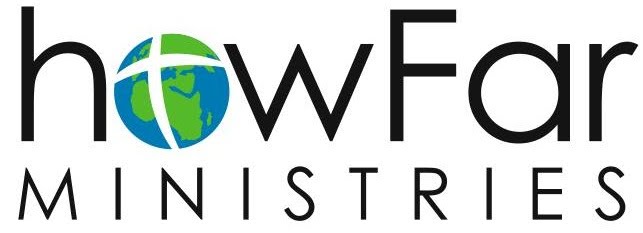One of the two core values at howFar is to "Love our neighbor as ourselves". We are doing that in rural northeast DR Congo in the village of Mudja.
Water is a critical problem in the area. When Mount Nyiragongo erupted in 2002 it covered the area from Mudja southward to Goma with its red hot lava flow. The catastrophe didn't end when the eruption ended and the lava cooled. The heat from the volcano evaporated all surface water, as well as, all subterranean aquifers. Today, water cannot be found beneath Mudja even by drilling the deepest of wells.
The villagers are forced to collect rain water through crude collection systems, gather water from small pools during the rains or walk the 25 kilometers round trip to Lake Kivu south of the city of Goma. The arduous 15.5 mile walk, nearly every day, is a dawn to dusk chore for at least one member of every family. But the walk to Lake Kivu is not the most daunting part of the task. It is the heavy load that they must carry back to the village that is exhausting. Each filled yellow plastic jerry can weighs a minimum of 40 pounds. For women the heavy load is carried on her back supported by a thick strap around the woman's forehead. Boys and men will carry two jerry cans. A load of over 80 pounds carried for several miles.
According to statistics the average person in the Unites States uses about 100 gallons of water per day. In Mudja, a person uses less that one gallon per day. That is for cooking, drinking, bathing and washing cloths.
Additionally, water can be contaminated in many ways. Ground water is often polluted by human and animal waste causing Cholera. Jerry cans are often improperly cleaned causing fresh water to become filled with harmful bacteria. The result is persistent sickness and disease in the village.
How Far Foundation is partnering with the Rotary Club of Buford/North Gwinnett to distribute Water Pasteurization Indicators (WAPI's), made by the Interact Club at North Gwinnett High School, to the village of Mudja. The simple devise shows when water has been pasteurize when it is submerged into heated water. For only 80 cents a villager can know that the water that they have worked so hard to bring to their family will not make them sick.
In January a howFar team delivered 500 WAPI's to the Batwa Pygmies living in Mudja Village.
The WAPI offers them a new peace of mind that they have not enjoyed before.
howFar seeks to "love our neighbor" by helping those who cannot help themselves.

No comments:
Post a Comment